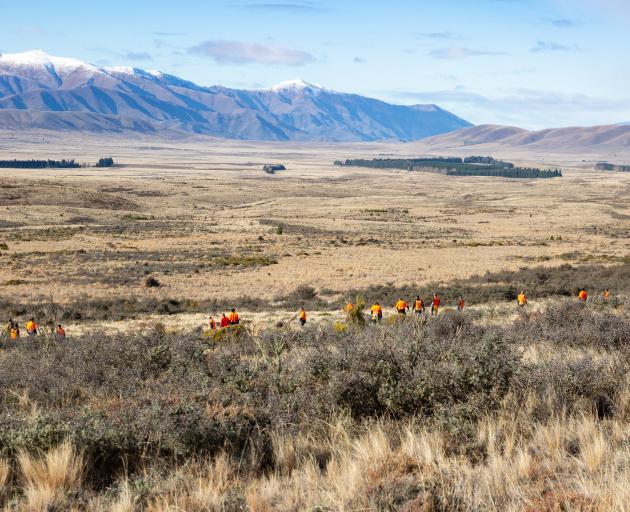
Information released by Environment Canterbury (Ecan) in early September showed $16.8million would go to fund major control work in the Mackenzie Basin, West Canterbury and North Canterbury areas and $360,620 would fund wilding pine projects on Banks Peninsula.
Twizel received the most funding with $5,054,211 for a control area of 2512ha and Godley received the least — $251,430 for an area of 110,415ha.
Mackenzie Basin Wilding Trees Trust chairman Andrew Simpson said the district’s wilding pine infestation was increasing dramatically each year.
"We probably have the worst infestation in the Canterbury region. Twizel is one of the gateways to Aoraki-Mt Cook and an iconic scenic viewing area; it is important that we try to protect it.
"I am absolutely looking forward to seeing them removed. We have been asking for a number of years and know that it would be catastrophic to not address it now."
Ecan’s regional leader of biosecurity, Graham Sullivan, said it was impossible to establish a general cost per hectare.
"The cost of control depends very much on the terrain and method used. For example, some hectares will be less than $1 per hectare, while others may be over $2000 per hectare."
The establishment of forest species in dryland grasslands reduced water yield (i.e., the amount of water leaving a catchment as stream flow) and runoff, he said.
"Studies of catchments where grassland is replaced by pine forest have shown that there is a reduction in annual surface water yields of 30% to 80%. This will have an impact on recreational, social and economic values.
"The Waitaki provides 30% of New Zealand’s generation capacity and substantial reduction in flow would affect the ability of Genesis and Meridian to maintain capacity and less water would be available for irrigation."













